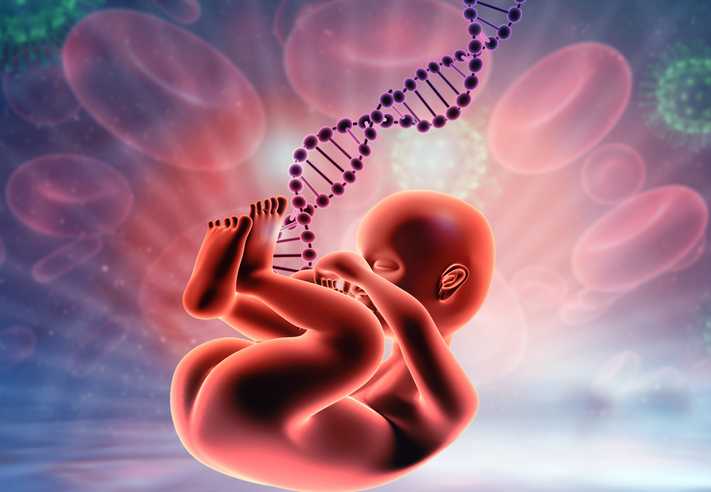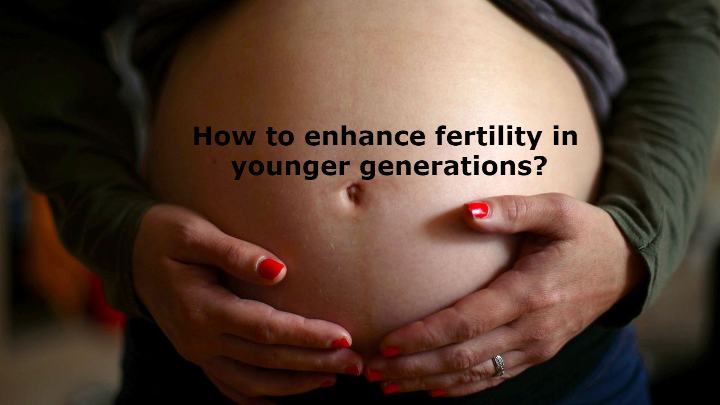Prenatal genetic counseling in India – Why is it relevant?

India accounts for nearly one fifth of the world’s annual child births, with about 25 million children born each year. With such high birth rates it becomes important to stress on need for prenatal and preconception care, in order to decrease the burden of genetic disease in India. Genetic disorders are considered rare. However, their true prevalence cannot be estimated due to lack of awareness and significant proportion remaining underdiagnosed particularly in developing nations like India. Worldwide data states that 5.3% newborns suffer from a genetic disorder, when followed up to 25 years of age.
In our body, we have millions of cells. In each cell, there are 46 chromosomes, found in 23 matching pairs. These chromosomes carry our DNA, or genes which in turn carry the instructions for how we look and how our body develops and functions. These instructions range from as normal things as our eye color to our risk for disease. Each egg and each sperm has just half, or 23, chromosomes each. When they meet at conception the chromosomes pair up to again make up the full complement that now forms the genetic blueprint for the new individual. As a result, half of a baby’s genes come from its father and half from its mother. There happens some spontaneous chance /coincidental changes in genes at the time of pairing up or at the time when the embryo is further developing. These changes called normal variations lead to the unique ness in each individual or baby. When these changes lead to disruption of a critical gene, they are called mutations which lead to disease.
Genetic disorders occur when there is a problem in a person’s chromosomes or genes and that causes physical abnormalities or illnesses. Prenatal genetic counseling is the process to identify the couple at risk of having a genetic disorder in their child. It includes screening of healthy couples for risk of common genetic abnormalities in their baby like Down syndrome or thalassemia and diagnose genetic abnormalities in the babies of high risk couples who could be carrying genes for a genetic disorder and not know it. The family can reach out for genetic counseling prior to conception, known as preconception genetic counseling. Learning about possible genetic issues in the pre-conception period is ideal, as knowledge permits patients to make informed reproductive decisions. Options available to couples before conception include adoption, surrogacy, use of donor sperm, in vitro fertilization after pre-implantation genetic diagnosis, and avoidance of pregnancy. Future technological advances will increase the choices available to couples
Experts recommend that all pregnant women, regardless of age or circumstance, should meet a genetic expert for them to evaluate their family history, personal history and identify any risk factors associated with increased risk of genetic abnormalities in their baby. Based on age, ethnicity, presence of family history, they may or may not be suggest genetic test.
It’s especially important to consider genetic counseling if: The couple is married within family (consanguineously)
- a standard prenatal screening test for babys genetic abnormalities has an abnormal result
- either parent or a close relative has an inherited disease or birth defect
- either parent already has children with birth defects, intellectual disabilities, or genetic disorders
- the mother-to-be has had two or more miscarriages or babies that died in infancy
Genetic tests are done by analysing small samples of blood or body tissues. The amount of genetic information we can get about a person or about their pregnancy from a simple blood draw is expanding rapidly. These tests can determine whether a couple , or their baby carry genes for some inherited/ genetic disorders. Genes are our permanent imprint and the mutations if detected cannot be removed from our or the baby’s cells. However, prevention of the birth of a baby with genetic mutations by timely diagnosis is possible with timely preconception / prenatal counselling and genetic testing. Prenatal genetic testing and genetic counseling is the best strategy for reducing the burden of genetic disorders and congenital disabilities that cause significant postnatal functional impairment, when provided timely.







